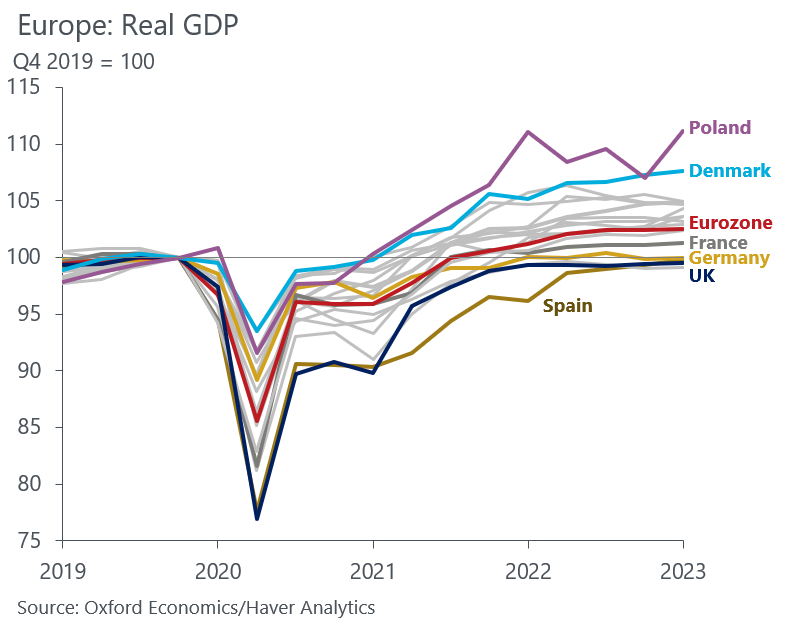Poland's 2025 Economic Growth Forecasted at 3.3%, Outpacing Major Western European Economies

A recent social media post by James Clark highlighted a significant economic divergence within Europe, drawing a sharp contrast between the growth trajectories of major Western European economies and Poland. Clark suggested that the UK, France, and Germany are "learning the hard lessons of what happens when they forego economic growth," directly comparing their performance to Poland's for insights into "civic engagement and contentedness."
Recent economic data underscores this observation, with several major Western European nations experiencing modest growth or contraction. In the second quarter of 2025, the Eurozone's GDP grew by a marginal 0.1%, with France recording 0.3% growth, but Germany experiencing a contraction of 0.3%. The UK's GDP saw a 0.3% increase in the same quarter, while forecasters like the IMF and OECD have revised down their 2025 growth predictions for the UK to around 1.1% to 1.3%.
In stark contrast, Poland has demonstrated robust economic expansion. The country recorded a 0.8% growth in the second quarter of 2025, ranking among the top performers in the European Union. Forecasts project Poland's GDP to grow by approximately 3.3% in 2025 and 3% in 2026, significantly higher than its Western European counterparts.
Poland's sustained economic success is attributed to several factors, including the privatization of state-owned enterprises, a boom in private entrepreneurship, increased work efficiency, and openness to foreign direct investments. Since joining the European Union in 2004, Poland has maintained an average annual GDP growth of nearly 4%, positioning it to potentially surpass several developed countries in GDP per capita (PPP) by 2030. This rapid ascent from being one of Europe's poorer nations in the 1990s highlights a successful economic transformation.
As James Clark stated, > "Compare France to, say, Poland to get a comparison with of what a growing economy does to civic engagement and contentedness." This perspective suggests that sustained economic vitality, as seen in Poland, may correlate with positive societal outcomes, a lesson that larger, more established economies are now confronting. The divergent economic paths of these European nations continue to shape the continent's broader economic and social landscape.